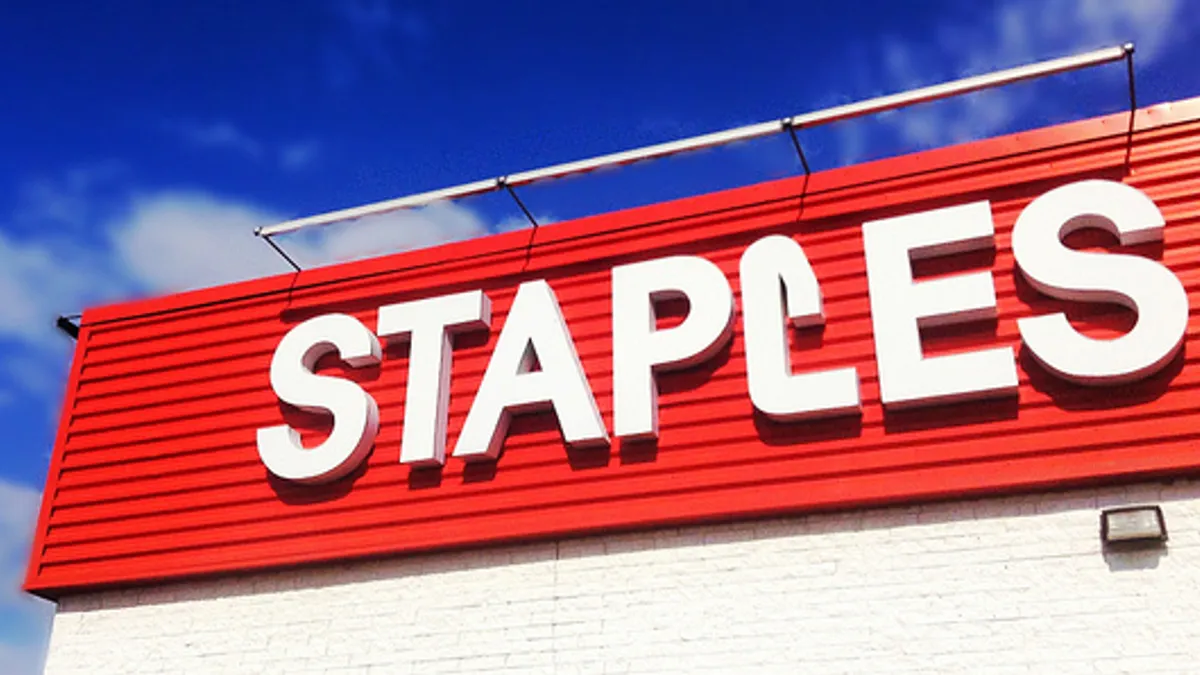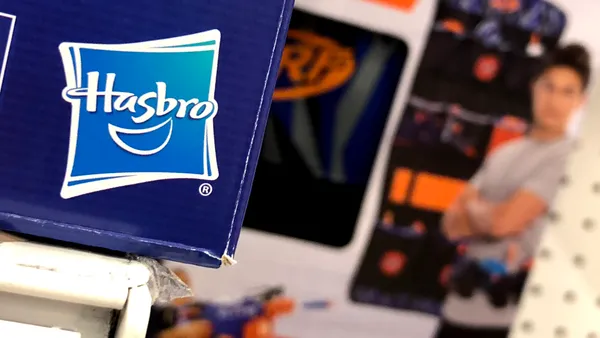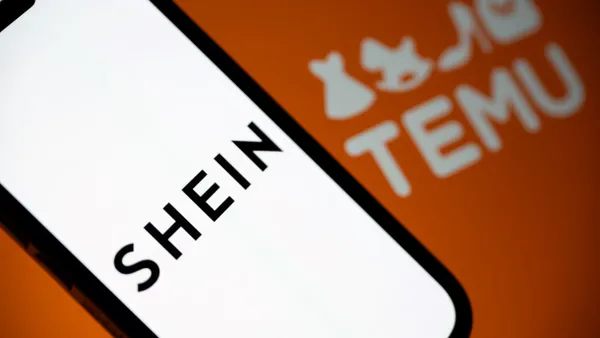Dive Brief:
-
U.S. District Court Judge Emmet Sullivan in the District of Columbia on Tuesday heard closing arguments in the government’s antitrust challenge to the proposed $6.3 billion merger of office supply rivals Staples and Office Depot.
-
The Federal Trade Commission has requested a preliminary injunction against the Staples/Office Depot merger, and on Tuesday, Sullivan took issue with a number of stipulations made by attorneys representing Staples. The judge said that Staples attorney Diane Sullivan’s description of a 1962 case bolstering the retailer’s argument for the deal was “somewhat incorrect,” according to Reuters.
-
Judge Sullivan also was resistant to Staples' argument that FTC economist Carl Shapiro was less credible because he was told to reach a specific conclusion. Diane Sullivan appeared to walk that position back a bit, saying that perhaps the FTC made a mistake, according to Reuters.
Dive Insight:
The proposed merger between Staples and Office Depot for months has seemed in doubt, hinging on the idea that the combined company’s resulting dominance in the business contracts space would impede competition. But last month, an exchange between Judge Sullivan and an Amazon Business executive seemed to put the FTC’s antitrust argument in jeopardy, because Amazon’s business supplies unit has made greater strides into the space than the FTC has maintained, and therefore poses a bigger threat to Staples' and Office Depot’s business contracts efforts.
During Tuesday's closing arguments, FTC attorney Tara Reinhart cited evidence indicating that both Staples and Office Depot consider the other its biggest rival. According to the Wall Street Journal, she pointed to a memo written by an Office Depot executive about its successful 2013 merger with Office Max, reading "Look out Staples! Here we come, bigger and stronger!!!" Reihart also presented a statement by Staples CEO Ron Sargent noting the office supply business was now "two major companies."
The FTC successfully blocked a proposed merger between Staples and Office Depot in 1997. At the time, the agency cited evidence that prices of office supplies were lower in areas where both companies operated stores. In hopes of winning approval then, both companies had also agreed to sell 63 of their stores to third rival OfficeMax. Office Depot subsequently acquired Office Max without FTC opposition.
While Staples has argued that the Office Depot/Office Max deal validates its argument for approving the merger with Office Depot, Judge Sullivan questioned the relevance of the earlier deal on the case currently under consideration. “The landscape is different now,” Sullivan said.
But Judge Sullivan also expressed questions Tuesday about the reliability of FTC expert testimony and whether the agency properly assessed the office supply market, suggesting the outcome of the case is still too close to call.
Business contracts, rather than the actual retail business, have emerged as the major sticking point in the Staples/Office Depot matter. Antitrust watchdog advocates raised the issue over the summer, urging the FTC to take a close look, and in December, after the FTC filed the federal complaint now being heard, Staples offered to divest itself of a chunk of that business. (European regulators voiced similar concerns that have since been resolved.)
In related news, Staples earlier this week sold its Staples Print Solutions unit to marketing firm Taylor Corp. Terms of the sale were not disclosed. Staples Print Solutions offers printing services for products like business cards, brochures and packaging.














